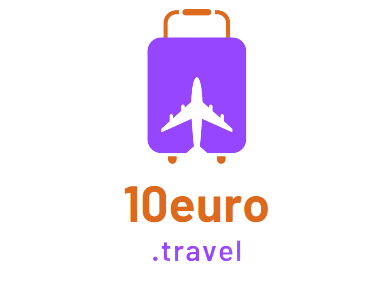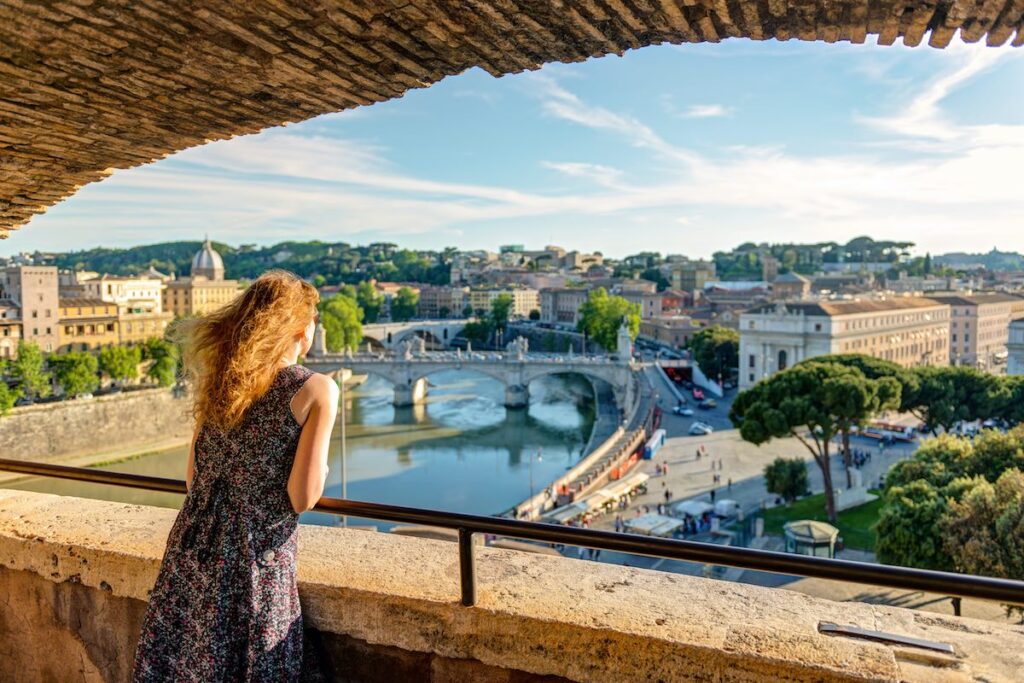No products in the cart.
Travel Guide
What To Do If You Get COVID While Traveling In Europe
Now that COVID-19 travel restrictions have been eased and only a few countries in Europe still have restrictions, travelers from all over the world are eager to explore the old continent and enjoy a wonderful summer vacation.
However, they might not be able to avoid getting COVID-19, especially while visiting landmarks and tourist destinations. According to recent data, popular destinations have been recording significant rises in cases, and the Omicron variant BA.5 has been spreading quickly.

But what can travelers do if they get COVID while traveling? Well, it depends on the country they are visiting. These are the current rules in the most popular countries:
Italy: Strict Quarantine Rules

Even though there are no entry restrictions, Italy still has a few rules regarding COVID. Here’s what travelers should know:
- FFP2 masks are still mandatory in public transportation, including buses, planes, and trains. In hospitals and health centers masks are also required.
- If you have COVID-related symptoms or had contact with someone with the virus, local authorities recommend to self-isolate and contact a doctor. Travelers can contact the national COVID hotline (1500) or regional hotlines.
- The government assists travelers with COVID-19 tests.
- According to the US Embassy in Italy, antigen tests cost around $20 and PCR tests around $70.
- Travelers who test positive will have to self-isolate, at the travelers’ own expense, for 7 to 21 days. Only vaccinated travelers —or those who recovered from COVID in the last 120 days— can quarantine for 7 days, non vaccinated travelers must quarantine for at least 10 days.
- In order to leave self-isolation, travelers must have had over 3 days without symptoms and test negative. Only after 21 days testing positive travelers can leave quarantine.
UK: No restrictions

The UK has also removed entry requirements, but this is what travelers must bear in mind:
- Travelers with symptoms or COVID-19 do not have to self-isolate.
- Local authorities recommend avoiding contact with people for 5 days.
- Travelers under 18 should stay at their accommodation for three days.
- Covid-19 tests aren’t free, and prices can vary a lot: from $47 to $594 depending on the type of test, location, and time delivering results.
France: Self-Isolation Required

France still requires travelers to be vaccinated or show a recent negative test result and fill in a health form. These are the main considerations for travelers:
- Masks are not mandatory but highly recommended in crowded places and in public transportation.
- Travelers are encouraged to download the local COVID-related app called “TousAntiCovid”.
- Vaccinated travelers who test positive for COVID-19, must self-isolate for 7 days from the first day of symptoms or from the day they got the positive result. If travelers feel well on day 5 and don’t have symptoms they can leave quarantine sooner with a negative test result.
- Non-vaccinated travelers who test positive must quarantine for 10 days. If they feel better on day 7 and obtain a negative COVID-19 test result, they can stop self-isolating.
Spain: Just A Few Restrictions

Spain requires international travelers —outside the EU— to show proof of vaccination or a negative test result. These are the current rules for travelers who get COVID:
- Those who are asymptomatic or don’t feel very sick are not required to quarantine. Travelers should self-isolate if they don’t feel well.
- Those who tested positive for COVID-19 are recommended to wear a face mask for 10 days in crowded places, public transportations, and public indoor spaces, and practice social distancing.
Portugal: Self-Isolation Required

Travelers don’t have entry restrictions, but, if they get COVID there are a few considerations:
- Travelers who test positive must self-isolate for 7 days at their own expense.
- In Madeira, the Azores, and Porto Santo self-isolation is required only for 5 days.
- Travelers can get assistance from local hotlines or call 112 in case of an emergency.
- Masks are mandatory on public transportation, taxis, hospitals and pharmacies.
Germany: Self-Isolation Required

There are no entry restrictions for travelers, but here’s what they should know:
- Facemasks are mandatory in public transportation and health centers.
- Travelers with COVID-19 symptoms should call the hotline 116 117 or a doctor.
- Those who test positive must self-isolate for at least five days. After getting a negative result, travelers can stop quarantining.

Read More:
Malta Finally Removes All Covid Entry Requirements
Travel Insurance That Covers Covid-19 For 2022
8 Tips for Navigating Travel Chaos and Flight Delays This Summer
↓ Join the community ↓
The Travel Off Path Community FB group has all the latest reopening news, conversations, and Q&A’s happening daily!

SUBSCRIBE TO OUR LATEST POSTS
Enter your email address to subscribe to Travel Off Path’s latest breaking travel news, straight to your inbox
Disclaimer: Current travel rules and restrictions can change without notice. The decision to travel is ultimately your responsibility. Contact your consulate and/or local authorities to confirm your nationality’s entry and/or any changes to travel requirements before traveling. Travel Off Path does not endorse traveling against government advisories
Source link

